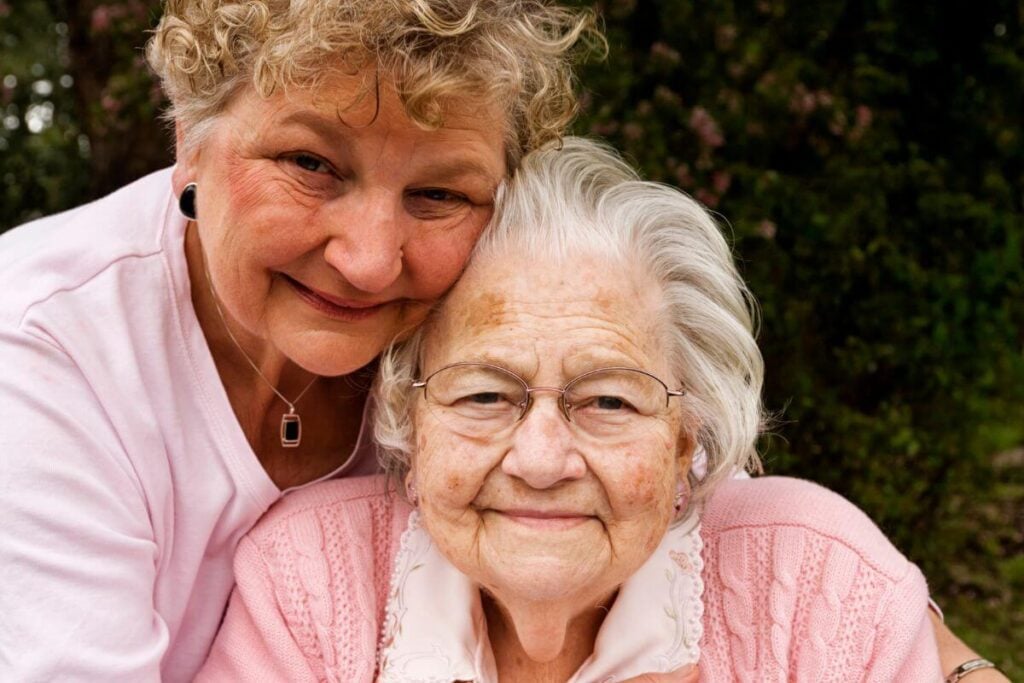Coping With the Emotional Toll of Caregiving
Coping with the emotional toll of caregiving involves a mix of self-care, seeking support, setting boundaries, and using community resources. It’s not always a perfect balance, but if you are aware of potential burnout, you are one step ahead of others.
Prioritizing self-care through relaxation, social activities, and hobbies is crucial to prevent burnout. Building a support system by talking to friends and family, joining support groups, and seeking professional help can provide emotional relief.

Additionally, establishing clear boundaries and utilizing community services like respite care can help manage the load and prevent overwhelming stress.
Let’s take a closer look at how we can cope with the emotional toll of caregiving because, trust me, you will appreciate it.

Coping with the Emotional Toll of Caregiving
Caregiving is a deeply emotional journey, often involving a complex mix of love, frustration, sadness, and resentment. While it can be a rewarding experience, the constant demands and high levels of responsibility can put significant strain on a caregiver’s mental and physical health, potentially leading to chronic stress and burnout.
Acknowledging and addressing these challenging emotions is vital for maintaining your own well-being and continuing to provide effective care without completely sacrificing yourself in the process. The following sections explore some of the common emotional challenges caregivers face and offer strategies for navigating them with resilience and grace.
Ways to Take Care of Yourself
It may sound counterintuitive, but prioritizing your own health and well-being is one of the most important things you can do as a caregiver. Neglecting personal needs can lead to severe physical and emotional consequences, including burnout and depression, which ultimately hinder your ability to provide care effectively. Engaging in self-care practices is not selfish; it is a necessary strategy for building emotional resilience, overall well-being, and sustaining your long-term health.
- Practice self-care: Choose activities you enjoy, even for short periods, like listening to music, reading, or taking a walk. Self-care is not selfish; it’s necessary to sustain your ability to provide care.
- Manage stress: Use stress-reduction techniques such as deep breathing, meditation, or mindfulness to stay calm. Feel your emotions rather than ignore or deny them.
- Tend to your health: Don’t neglect your own health appointments and vaccinations. Take your medications on time, eat nutritious foods, drink plenty of water, get outside in the sun, move your body, get plenty of sleep… you know… all the things that will keep you healthy.

How to Build Your Support System
Caregiving can be an all-consuming role, leaving little time or energy for personal pursuits, friends, or a social life. This loss of connection can lead to significant feelings of loneliness and isolation, as friends and family outside the situation may not fully understand the daily challenges you face. It’s important to build a strong support system around you so you have the emotional connections you’ll need.
- Connect with others: Talk to friends, family, or a counselor to sort through your emotions. You may be surprised by how many people are willing to help once they understand your needs. Actively work to seek out others who share similar experiences.
- Join a support group: Connecting with other caregivers can provide a safe space to share feelings and learn new coping strategies. Look for community support groups where you can share experiences and learn from each other. I suggest that you also check out Caregiver Action Network and Family Caregiver Alliance for excellent resources.
- Enlist professional help: Consider hiring professional caregivers for assistance with daily tasks, and/or seek help from professional mental health services for you. You can normally find resources for help in your community.

How to Manage Responsibilities and Anticipatory Grief
One of the heaviest burdens a caregiver carries is the immense weight of responsibility for a loved one’s health and safety. This can often lead to feelings of guilt, as we constantly question if we are doing enough, doing it right, or balancing the needs of the care recipient with our own lives and other family expectations. Learning to manage this guilt and set realistic boundaries is a critical step in preserving your emotional health and dealing with anticipatory grief.
- Set realistic boundaries: It’s okay to say no to additional responsibilities and recognize that you cannot do everything alone. Let your loved one know when you are unavailable for certain tasks. Ask family and friends for help when necessary.
- Utilize community and government resources: Explore local resources like respite care, senior centers, or support programs. Some programs may offer financial aid, counseling, and educational materials that can make your journey easier.
- Leverage technology: Use technology to lighten the load, such as medical alert systems or sensors that can alert you if a loved one begins to wander.
- Manage anticipatory grief: Focus on the present moment. When you feel overwhelmed by thoughts of the future, bring your attention back to the current moment. Spend quality time with your loved one, sharing stories and expressing gratitude. Engage in activities you both enjoy.
Pin to your Sassy Sister Stuff Pinterest Board
Ways to Manage Your Emotional Health
The caregiving journey is rarely a smooth path; it is often an intense emotional rollercoaster where feelings can shift rapidly from profound love to intense frustration, anger, or even resentment. Additionally, many caregivers experience a form of ongoing or anticipatory grief as they witness the gradual decline of the person they care about, which can be heartbreaking. Understanding that these complex, sometimes contradictory, emotions are normal and valid is the first step toward healthy coping.
- Set Realistic Expectations: Acknowledge your limitations and accept that you cannot do everything perfectly or reverse the course of a disease. Set small, achievable goals each day and celebrate those successes.
- Acknowledge your feelings: It is normal to experience a range of emotions while caregiving your loved ones, including frustration, sadness, guilt, and ambivalence. Allow yourself to feel these emotions without judgment.
- Keep a journal: Writing down your feelings can be a healthy way to process them. Make it a daily habit—set aside 15 minutes a day to make journaling a priority.
- Focus on the positive: Try to find meaning in the rewarding aspects of caregiving and celebrate small victories. Some days it might feel hard to find a positive; be grateful for even a shared smile or getting a load of laundry done.
How to Recognize Caregiver Burnout
In case you are still struggling, even after trying all the above tips and strategies, you may be experiencing caregiver burnout. If you get to this point, it is important for you to seek help. Everyone has individual experiences with caregiver burnout so it’s important to recognize the general symptoms.
What is caregiver burnout?
Caregiver burnout is a state of physical, emotional, and mental exhaustion that occurs when a person provides long-term care for a loved one with a chronic illness, disability, or aging-related needs. It is characterized by:
- Physical Symptoms: fatigue, insomnia, headaches, and muscle aches.
- Emotional Symptoms: frustration, overwhelm, anxiety, guilt, and depression.
- Mental Symptoms: Difficulty concentrating, memory problems, reduced decision-making ability, and neglecting own needs.
Caregiver burnout can lead to health problems for both the caregiver and the care recipient, as well as strained relationships and social isolation. It is important to seek help and support if you are experiencing symptoms of caregiver burnout.
For additional information, check out this article from Caregiver Action Network about caregiver burnout and compassion fatigue.

Final Thoughts
I’ve been a primary caregiver for both of my parents in their final months. For my dad, I moved in with him for 8 months before he passed away. It was a highly emotional journey as I learned to live with his aging health issues and the transition to his home.
There were times when I laid in the bed and cried; there were times when I raised my voice at my dad. My emotions were all over the place until I realized it was going to be helpful to get some help and do some research.
These are tips I learned when I got help for coping with the emotional toll of caregiving and the stress of my new responsibilities. I did a lot of self-reflection, journaling, mindfulness, setting boundaries, and getting connected with others. These were my coping mechanisms during that challenging time of my life.
However, I also want to mention that this was a precious time of my life where I connected with my dad in ways we had not done in all my years of life. I learned about generations that came before us; we binge watched television shows; and we laughed about the silliest things.
So I want to encourage caregivers who are struggling with emotional upheaval to look for the little things that make your relationship special, and cherish those times.
You may enjoy these Related Articles:
- Balancing Caregiving and Self-Care: Finding Peace in the Middle
- Strategies for Navigating Family Dynamics in Caregiving
- How to Avoid Arguing with Elderly Parents
- Feeling Trapped Caring for Elderly Parents? Here’s Help!
- Your Elderly Parent Keeps Talking About Death… Here’s Why
Love to ALL! ~ Susan







